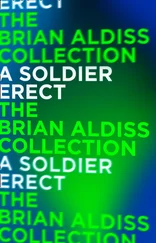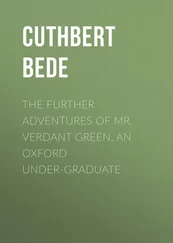
Henri Charrière
Banco: the Further Adventures of Papillon
Translated from the French by Patrick O'Brien
To the memory of Dr. Alex Guibert-Germain, to Madame Alex Guibert-Germain, to my countrymen, the Venezuelans, to my French, Spanish, Swiss, Belgian, Italian, Yugoslav, German, English, Greek, American, Turkish, Finnish, Japanese, Israeli, Swedish, Czechoslovak, Danish, Argentine, Colombian, and Brazilian friends, and all those friends who are faceless but who have done me the honor of writing to me.
Translator's Introduction
Middle-aged, impoverished by an earthquake and worried about his future, Henri Charrière sat down to write a book to restore his fortunes: it was his first, and he called it _Papillon_, the name by which he had been known in the underworld of Paris and in the French penal settlements. He had no great opinion of himself as an author and he was quite willing to have it improved, cut about and put into "good French"; but the first publisher he sent it to happened to employ a brilliant editor who at once realized the exceptional quality of the manuscript and who delivered it to an astonished public in its original state, merely tidying up the punctuation, the spelling and a very few points of style.
That was in 1970, the year of the _phénomene Papillon_, a phenomenon almost unparalleled in the annals of publishing: it was not only that an extraordinary number of people read the book (850,000 copies were sold in the first few months), but that the readers embraced the whole spectrum of literary opinion, from the Académie Française to those whose lips moved slowly as they made their fascinated way through the strange adventures of an indomitable man struggling against the society that had sent him to rot in the infamous tropical prisons of Guiana with a life sentence for a murder that he had never committed.
They were all deeply moved by the burning sense of injustice that runs right through the book and that gives it its coherence and validity, but even more by Papillon's sheer narrative power, his innate genius for telling a story. "This is a literary prodigy," said François Mauriac. "It is utterly fascinating reading… This new colleague of ours is a master!" And he pointed out that it was not enough to have been a transported convict and to have escaped again and again; extraordinary talent was required to give the book its ring of truth and to make its value "exactly proportional to its immense success."
The soundness of Mauriac's words can be seen not only from the immense quantities of hopeless manuscripts by other exprisoners (purple characters, but untouched by genius) that flow into publishers' offices every week, but also by the baldness of the following summary that is intended to put the reader of this second volume into the picture: the main facts are here, but I am the first to admit that the heart of the matter is lacking.
The facts, then: in 1931 Henri Charrière, alias Papillon, was sentenced to hard labor for life, and in 1933 he was taken away with some hundreds of others in a prison ship bound for South America, for French Guiana. Here he found himself in an appallingly tough and savage world where corruption, terrorism, sodomy and murder were commonplace; he was well equipped for survival in this world, being as tough as any man there, perfectly loyal to his friends and perfectly uncompromising in his hatred of the official establishment, and in time he could have carved out a respectable place for himself. But he had no intention of staying; he had sworn not to serve his unjust sentence, and forty-two days after his arrival he made a break. With two companions (one broke his leg in escaping) he made his way down the Maroni River in a crazy boat; at a remote lepers' island they changed boats and so rode out to sea, sailing under the broiling sun day after day until at last they reached Trinidad. On and on to Curaçao, where the boat was wrecked; on to Rio Hacha in Colombia, where the wind failed them and they were taken prisoner. Another break, this time with a Colombian friend, and eventually Papillon reached hostile Indian territory, alone and on foot. They took him in, gave him two wives, and then, when at last he would stay no longer, a bag of pearls. Back to Colombia, only to be arrested and imprisoned once more, and, after several abortive breaks, handed over to the French authorities. Then solitary confinement on the Ile Saint-Joseph-a deeply moving account of the silence, the heat and the utter loneliness of that dim, timeless, underground cage- two years of it. When at last it was over and he was out in the light again, he began to make a raft for another break; but a fellow convict informed upon him, and having killed the informer he went back to solitary-an eight years' sentence cut to nineteen months for rescuing a little girl from the sharks. Another attempt at escape; transfer to Devil's Island; and then the final break at last, riding two sacks of coconuts through the shark-infested sea to the mainland. A new boat and a new series of adventures brought him to Venezuela and to the Venezuelan penal settlement at El Dorado, where he was held on the charge of being a rogue and a vagabond. But a coup d'etat in Caracas brought the promise of release, and the last pages of the book show Papillon, equipped with genuine papers at last, and dressed in good civilian clothes, ready to walk out into freedom after fourteen years of being in prison or on the run. That is where the present volume starts, and from now on his story is told in his own infinitely more living words.
PATRICK O'BRIAN
What you think of yourself matters more than what others think of you
(author unknown to Papillon)
1 First Steps into Freedom
"Good luck, Frenchman! From this moment, you're free. _Adios!_"
The officer of the El Dorado penal settlement waved and turned his back.
And it was no harder than that to get rid of the chains I had been dragging for fourteen years. I held Picolino by the arm, and we took a few steps up the steep path from the riverbank, where the officer had left us, to the village of El Dorado. Now, sitting here in my old Spanish house on the night of August 18, 1971, to be exact, I can see myself on that pebbly track with unbelievable clarity; and not only does the officer's voice now ring in my ears in just the same way, deep and clear, but I make the same movement that I made twenty-six years ago-I turn my head.
It is midnight: outside the night is dark. But for me, for me alone, the sun is shining: it's ten o'clock in the morning, and I stare at the loveliest back I have even seen in my life-the back of my jailer as he moves farther and farther away, symbolizing the end of the watching, the eavesdropping, the prying that I endured every day, night, minute and second for fourteen years.
I turn my head for a last look at the river, a last look, beyond the guard, at the island with its Venezuelan penal settlement, a last look at a hideous past when I was trampled upon, degraded and ground down.
Abruptly, I catch Picolino by the arm, turn my back on the picture and lead him quickly up the path, first giving myself a shake to get rid of the filth of the past for good and all.
Freedom? Yes, but where? At the far end of the world, way back in the plateaus of Venezuelan Guiana, in a little village deep in the most luxuriant virgin forest you can imagine. I was at the southeastern tip of Venezuela, close to Brazilian frontier: an enormous sea of green, broken only here and there by the waterfalls of the rivers and streams that run through it-a green ocean dotted with little communities, each gathered around a chapel. Often these _pueblitos_ are linked to others by only a truck or two, and looking at the trucks, you wonder how they ever got so far. In their isolation these simple, poetic people live just as people did hundreds and hundreds of years ago, free from all the taints of civilization.
Читать дальше
Конец ознакомительного отрывка
Купить книгу












